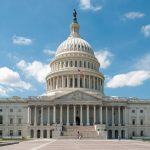Donald Trump is once again shaking things up, and the entrenched bureaucratic swamp is not taking it lightly. The President-elect has recruited the dynamic duo of Elon Musk and Vivek Ramaswamy to spearhead a bold initiative dubbed the Department of Government Efficiency, or DOGE for those who prefer succinct acronyms. Their ambitious goal? To cut a staggering $2 trillion from federal spending. It sounds Herculean, and that’s because it is.
As soon as Trump dropped the news, the defenders of the status quo sprang into action with the urgency of principal strikers at a teachers’ union meeting over a pay cut. Critics, such as those at The Washington Post, lamented that Musk’s business-oriented tactics might come off as a “slash-and-burn” approach to government. Meanwhile, The Hill scrambled to paint DOGE as a pie-in-the-sky fantasy, with four so-called “experts” insisting it couldn’t possibly succeed. Other publications resorted to childish name-calling by labeling DOGE a “joke” or “dumb and dangerous.” Clearly, the idea of trimming the fat from the bloated federal government does not sit well with those wallowing in it.
Threat to democracy?
Nope, threat to BUREAUCRACY!!!
— Elon Musk (@elonmusk) November 13, 2024
Despite the heap of objections, there’s a glimmer of hope. Historically, post-war efforts to streamline government like the Hoover Commission or the Simpson-Bowles initiative have often ended in frustrating little results. As budgetary numbers have consistently climbed, it seems that getting a handle on federal spending remains as elusive as finding a unicorn. But here’s the kicker: Americans are fed up with the government’s inefficiency and wastefulness, particularly in light of recent spending boondoggles that have included everything from questionable pandemic expenditures to endless grants for dubious academic studies.
Musk’s reputation as a cost-slasher will undoubtedly be an asset in the mission. SpaceX’s achievements are nothing short of extraordinary; it cranked down the cost of sending goods to space by an astonishing 90%. He even managed to trim Twitter’s workforce by nearly the same percentage—while simultaneously enhancing the platform. Wielding the Twitter axe doesn’t quite equate to resizing Washington’s bureaucracy, yet it hints at Musk’s audacity in cutting through red tape. He’s well-positioned to make some waves, and if he tweets any sort of defense against his naysayers, it will undoubtedly be a battle cry for saving freedom from bureaucracy.
However, the task appears Herculean not only due to resistance in Washington but due to the vast sums tied up in social programs that many consider untouchable, such as Social Security and Medicare. Even if every single bureaucrat in the capital were shown the door, there’s still a mountain of spending that would likely remain untouched, fueled by well-organized interests on the Hill desperately advocating for their cherished funding. History has shown that significant reform in Washington is a slow and painful process, made even more challenging by BaumoI’s Cost Disease—an economic theory that indicates as services become more complex, costs inevitably rise.
But let’s not forget Trump’s penchant for outside-the-box thinking. He has been known to embrace the nation’s energy resources, viewing them as “liquid gold,” “vapor gold,” and “solid gold.” The sheer potential underlying America’s natural resources—crude oil, natural gas, and coal—could facilitate budgetary miracles that bewilder the average taxpayer. The oft-ignored wealth beneath the surface could fund programs such as Medicare directly, separating them from the federal budget, creating the win-win scenarios so desperately needed to gain public support.
In the end, while the swamp may initially rear its ugly head at the thought of DOGE, this might very well be the bold step forward that conservatives have been waiting for. With Musk and Ramaswamy at the helm and a bit of financial ingenuity, reducing federal spending by $2 trillion is more than just a pipe dream; it could signal a renewal of fiscal responsibility that resonates more broadly with the American public. Just remember, trimming the fat from Washington doesn’t have to be a fantasy; it just requires a different playbook—one that finally aims to rein in the government’s insatiable appetite for spending.




